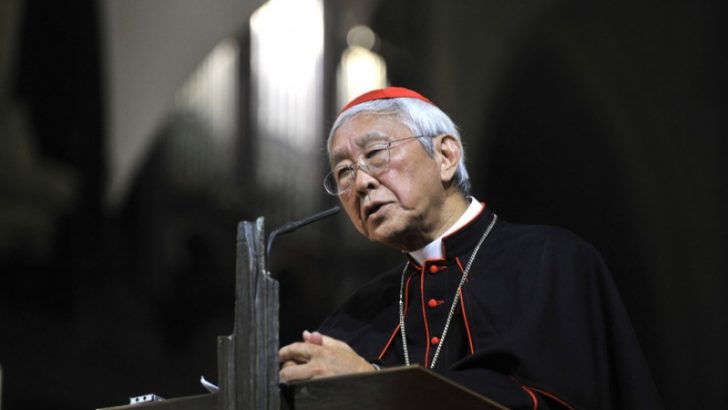A well-known Chinese prelate has dubbed a new deal between the Vatican and China as a “betrayal” of Catholics in the country.
For the first time in decades, all of the Catholic bishops in China are in full communion with the Pope, the Vatican announced.
Cardinal Joseph Zen, former bishop of Hong Kong, called on the Pope’s secretary of state to step down saying a deal with Beijing would be “giving the flock into the mouths of the wolves”.
Pope Francis lifted the excommunications or irregular status of seven bishops who had been ordained with government approval, but not the Vatican’s consent.
Representatives of the Vatican and the Chinese government signed what they described as a “provisional agreement” on the appointment of bishops.
Hopes
Regularising the bishops’ status, the Vatican said, Pope Francis hopes “a new process may begin that will allow the wounds of the past to be overcome, leading to the full communion of all Chinese Catholics”, some of whom steadfastly have refused to participate in activities or parishes under the leadership of bishops not recognised by Rome.
In recent years, most bishops chosen by the government-related Chinese Catholic Patriotic Association have sought and received Vatican recognition before their ordinations.
“What is required now is unity, trust and a new impetus,” Cardinal Parolin said in a video message recorded before he left Rome to join the Pope in Vilnius. “To the Catholic community in China – the bishops, priests, religious and faithful – the Pope entrusts, above all, the commitment to make concrete fraternal gestures of reconciliation among themselves, and so to overcome past misunderstandings, past tensions, even the recent ones.”
The nomination and assignment of bishops has been a key sticking point in Vatican-Chinese relations for decades; the Catholic Church has insisted that bishops be appointed by the Pope and the Chinese government has maintained that would amount to foreign interference in China’s internal affairs.
Catholic communities that have refused to register with the government and refused to follow government-appointed bishops commonly are referred to as the underground church.
Vatican officials always have said that giving up full control over the nomination of bishops would not be what it hopes for, but could be a good first step toward ensuring greater freedom and security for the Catholic community there.


 Cardinal Joseph Zen
Cardinal Joseph Zen 